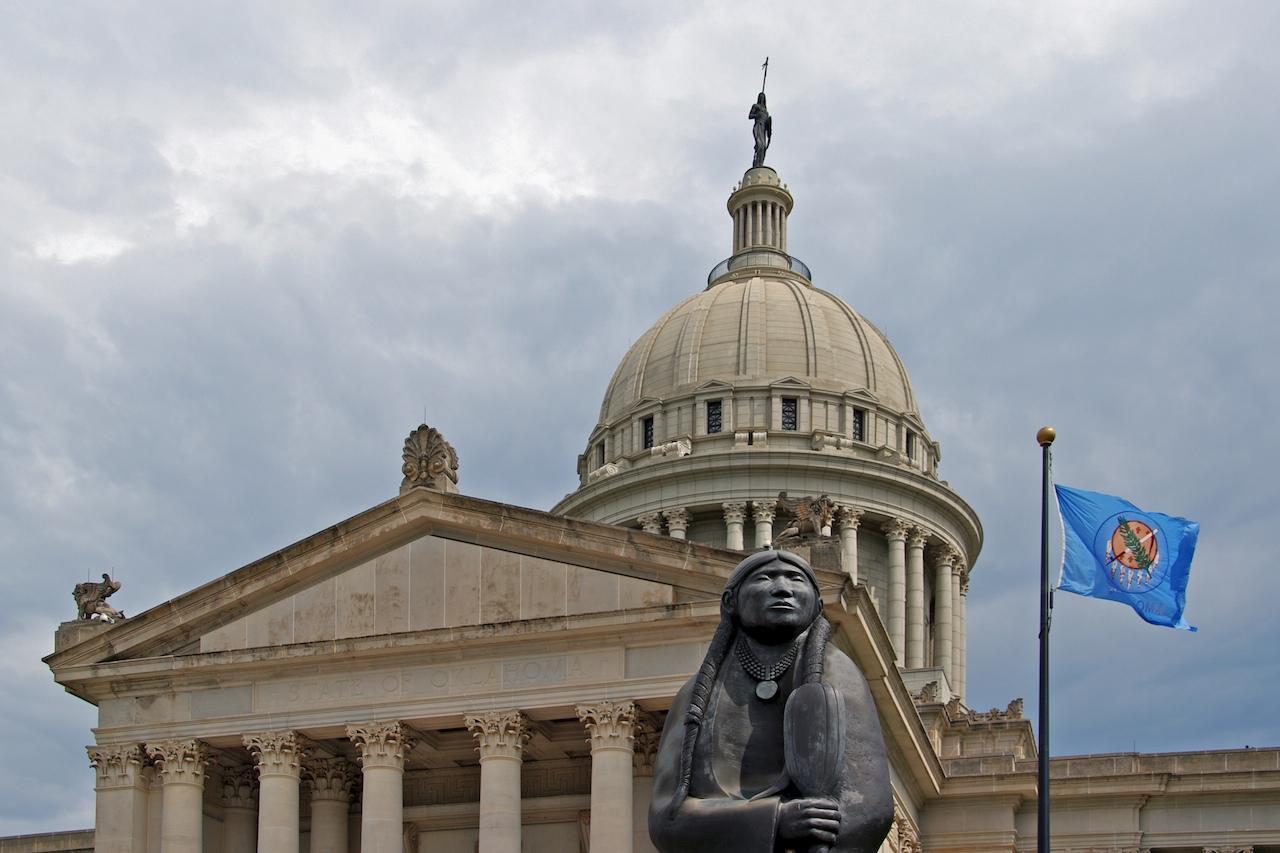
Oklahoma State Capitol
Jackie Fortier / StateImpact Oklahoma


Oklahoma State Capitol
Jackie Fortier / StateImpact Oklahoma
The Oklahoma House of Representatives unveiled its legislative priorities for education Thursday, and it’s got two main objectives: give public schools a $500 million funding increase and give parents tax credits to send their kids to private schools.
Like all proposals, bills have to pass through the legislative process before they can become law.
The $500 million increase is divided up like this:
$150 million would go to across-the-board $2,500 teacher raises. These raises must be added to what teachers are currently being paid, rather than other raise proposals that adjust the minimum salary schedule. McCall said this was to prevent schools that already pay over the minimum salary from keeping teachers’ salaries the same and letting the overage pay fill in for the increased salary schedule.
$50 million would go toward addressing funding disparities in districts with below-average revenue from local taxes.
$300 million would be distributed to schools on a per-pupil basis with a cap at $2 million per district. Districts have discretion on how they want to spend the money, but with some guardrails. Expenditures can include:
The other major proposal is termed the Oklahoma Parental Choice Tax Credit Act (House Bill 1935), and it would provide tax credits for students at private schools and who are homeschooled. Private school students would receive a $5,000 credit each tax year, and homeschooled students would receive a $2,500 credit each tax year.
Those credits can be used toward certain qualified expenses, such as:
The program would have some accountability measures attached: Taxpayers using the system have to retain all receipts of qualified expenses as proof of the amounts paid each tax year the credit is claimed. In order to qualify for the program, a student cannot be enrolled full time in a public school.
According to McCall, if education funding decreases, the tax credit would be suspended until funding is restored. If a revenue failure or revenue increase occurs, the tax credit will decrease or increase proportionally.
The credit can also be stacked with the Lindsey Nicole Henry Scholarship, which awards students under the Individuals with Disabilities Education Act, among other categories of students, with scholarships for private schools.
McCall said the program also has an anti-severability clause, which would mean in the instance a court finds the law unconstitutional, the program would be pulled in its entirety and “start back at square one.”
The program would be administered by the Oklahoma Tax Commission, which would develop a review process for student enrollment information in order to verify an eligible student receiving a tax credit is not enrolled in a public school.
Taxpayers would also be allowed to request an advancement of the credit amount, which would be paid in two installments of $2,500 per semester. If the tax commission finds the student is no longer attending a private school or has enrolled in a public school, it can recapture those credits on a prorated basis.
House Bill 1935 passed through the Appropriations and Budget committee Thursday and can now be heard on the House Floor.